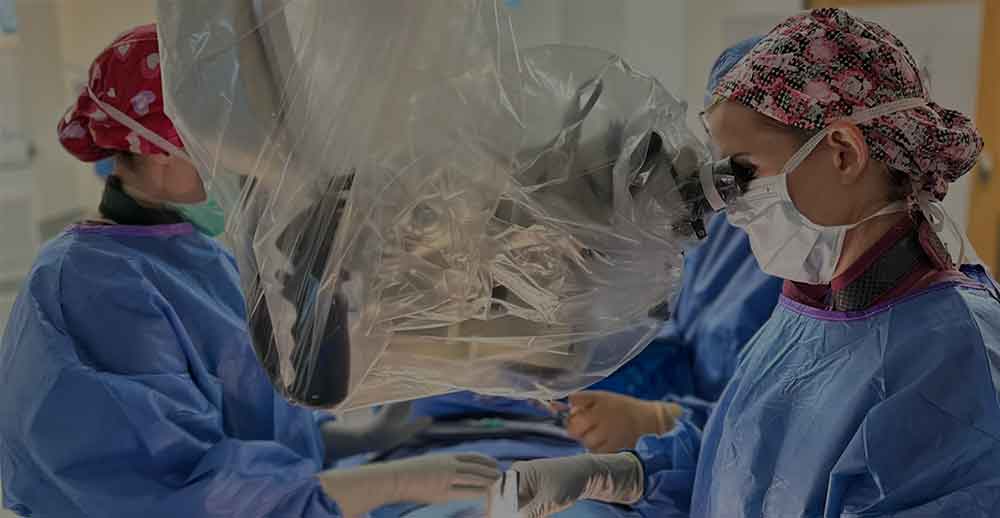6 Traits Every Surgeon Must Have

6 Traits Every Surgeon Must Have
What Makes Some Spine Surgeons Get Better Results Than Others
Most patients choose their spine surgeon based on the wrong criteria.
I’m going to discuss the truth about why some spine surgeons get better outcomes—and it isn’t what you may think. Let me explain the six traits that actually matter.
It’s not uncommon—I have patients come to me after previously having surgery by another surgeon and they didn’t have the results they had hoped for. Oftentimes, when choosing a surgeon, people focus solely on years of experience or the number of surgeries performed. While these factors matter, what truly separates exceptional surgeons from average ones comes down to six specific traits.
I’ve observed these traits consistently in surgeons who achieve the best outcomes for their patients, and I’m here to share them with you today.
First, let’s talk about compassion.
I often hear patients say they don’t care about bedside manner—they just want a surgeon who is technically skilled. I understand this perspective. Technical skills are absolutely critical to executing a successful surgery while minimizing risks.
But here’s why compassion directly impacts surgical outcomes: when a surgeon truly cares about their patients, they may make different decisions in critical moments during surgery. We often encounter situations that require additional time and attention. A compassionate surgeon will take that extra time, use every possible technique, and treat each patient as if that patient were their own family member. This allows for a better outcome.
The second trait is meticulous attention to detail.
This goes far beyond just being careful during surgery. It starts with studying imaging findings, truly listening to the patient’s concerns, and performing a detailed physical exam.
There are countless nuances in anatomy and pathology that can significantly affect surgical decision-making. If these details aren’t picked up early when studying someone’s images or reviewing their symptoms, the surgical plan may be incorrect from the start.
The third trait is ethical decision-making,
and this is where some surgeons unfortunately fall short. A truly great surgeon selects the best possible outcome for their patient—not what’s easiest or most profitable for the surgeon.
Some surgeons only offer the five or six procedures they’re most comfortable with, even when a different approach might be better for the patient. An ethical surgeon will refer that patient to another provider if there’s a better treatment option outside their typical repertoire.
The fourth trait is patience,
and this impacts surgical outcomes in ways most people don’t realize. Every person’s body is different, and surgeons encounter various challenges and nuances during operations. A patient surgeon maintains composure when facing these challenges. They remain calm, systematic, and rely on their perseverance to ensure the goals of surgery are accomplished with minimal risk.
This trait becomes particularly crucial when working with operating room staff. If a surgeon becomes frustrated, impatient, or angry during stressful situations, this sets the tone for the entire operating room. A nervous surgical technician or a frustrated nurse may not perform at their optimal aptitude. In intense settings with surgeons yelling or throwing fits, this can create a cascade of problems: equipment might be handled incorrectly, instruments might be dropped, and the entire team’s performance suffers.
It is the surgeon’s responsibility to create a calm environment in the operating room where everyone can perform at their best. This results in a more successful operation for the person asleep on the operating table.
The fifth trait, as alluded to earlier, is technical or surgical aptitude and competence.
This involves working with millimeter precision instruments—often under microscopes—operating around the spinal cord or arteries carrying blood to the brain. We are frequently passing screws and hardware very close to the spinal cord or the nerve roots.
But technical skill goes beyond just steady hands and awareness of anatomy. It’s about responding to stress and distractions while leading a team.
The sixth and final trait is a willingness to adapt and embrace new techniques.
This might seem obvious, but many surgeons resist change once they become comfortable with their methods. The best surgeons continually learn and implement new approaches, even when these techniques take longer in surgery or mean less financial reimbursement for the surgeon.
Surgeons must prioritize outcomes like decreased hospital stays, less blood loss, reduced infection risk, and faster recovery over surgical speed or profit.
These six traits work together synergistically. A surgeon might have great technical skills, but without patience and compassion, they might rush through cases or make poor decisions under pressure. They might have excellent ethical standards, but lack adaptability to learn new, more effective techniques.
When choosing a spine surgeon, look for evidence of these traits during your consultation.
Does the surgeon take time to study your imaging results and listen to your concerns? Do they thoroughly explain things to you? Do they present multiple treatment options, including conservative approaches? Are they willing to refer you elsewhere if needed? Do they discuss new techniques or approaches in your particular case?
Remember—spine surgery isn’t just about the technical procedure. It’s about the entire journey from diagnosis through recovery. A truly great surgeon guides you through this journey with compassion, attention to detail, ethical decision-making, patience, technical excellence, and adaptability.
Next week, I’ll share specific questions you can ask during your consultation to evaluate these traits. Understanding these characteristics can help you make a more informed decision about your spine care.
The quality of your surgeon directly impacts your outcome. While credentials and experience are important, these six traits often make the difference between good and exceptional results. Take the time to find a surgeon who embodies these characteristics.
